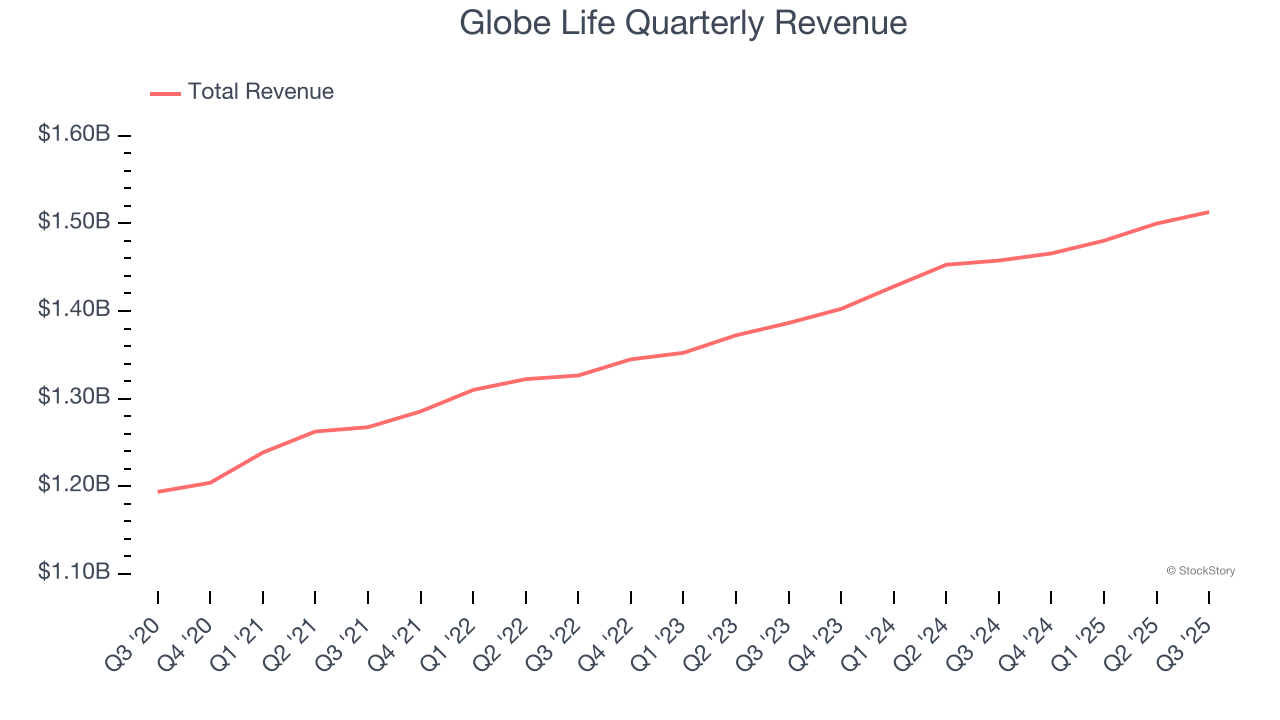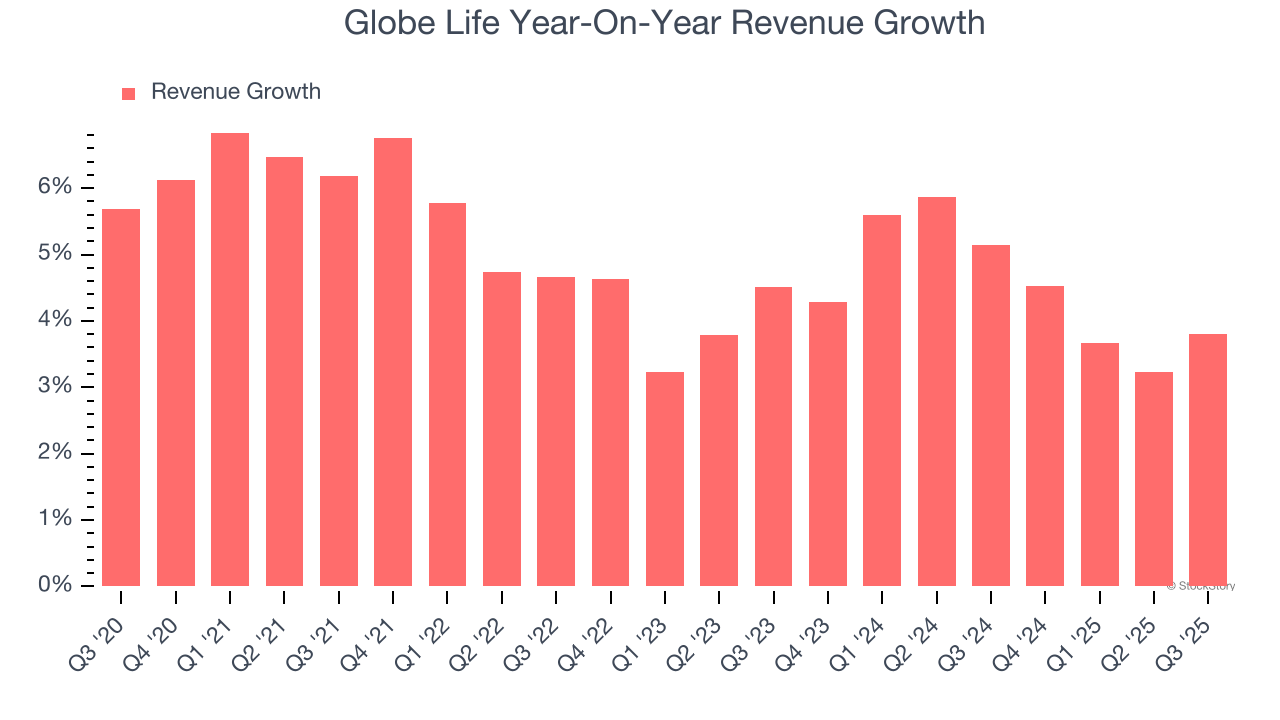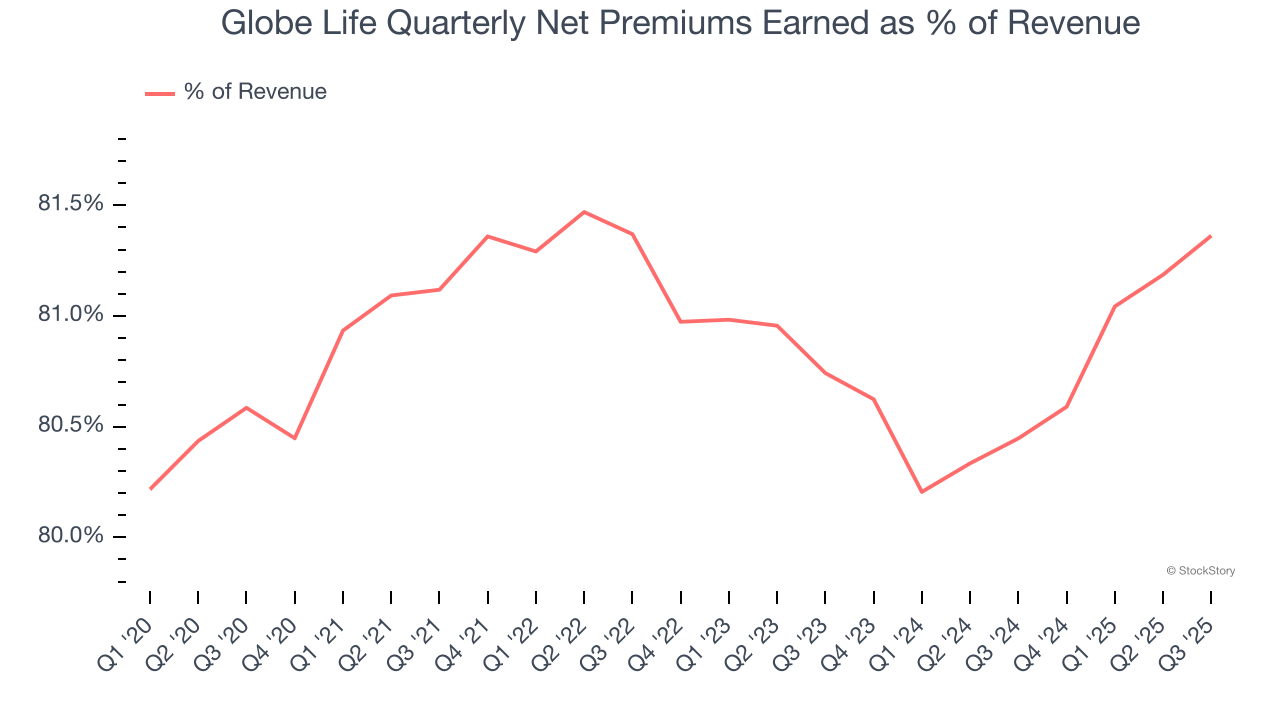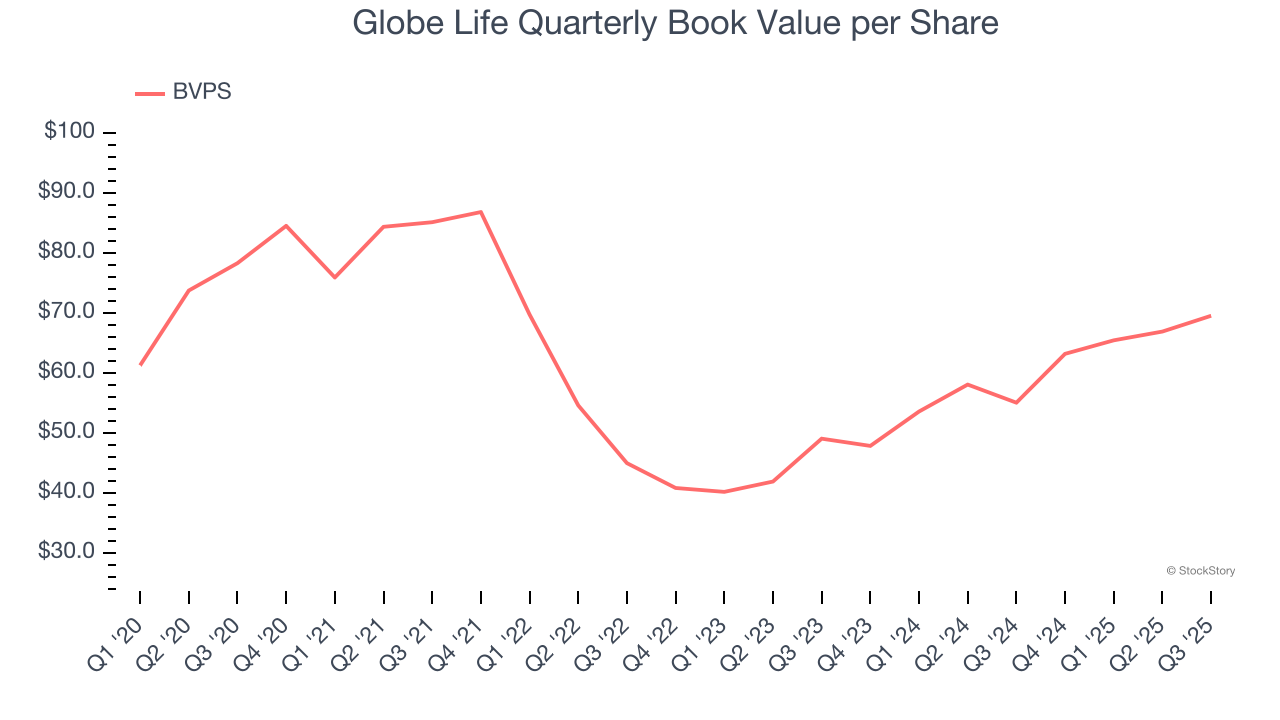
Insurance holding company Globe Life (NYSE:GL) fell short of the market’s revenue expectations in Q3 CY2025 as sales rose 3.8% year on year to $1.51 billion. Its GAAP profit of $4.73 per share was 3.9% above analysts’ consensus estimates.
Is now the time to buy Globe Life? Find out by accessing our full research report, it’s free for active Edge members.
Globe Life (GL) Q3 CY2025 Highlights:
- Net Premiums Earned: $1.23 billion vs analyst estimates of $1.23 billion (5% year-on-year growth, in line)
- Revenue: $1.51 billion vs analyst estimates of $1.52 billion (3.8% year-on-year growth, 0.6% miss)
- Pre-tax Profit: $477.1 million (31.5% margin, 26.6% year-on-year growth)
- EPS (GAAP): $4.73 vs analyst estimates of $4.55 (3.9% beat)
- Market Capitalization: $11.02 billion
Company Overview
With roots dating back to 1900 and a rebranding from Torchmark Corporation in 2019, Globe Life (NYSE:GL) is an insurance holding company that offers life insurance, supplemental health insurance, and annuity products through various distribution channels.
Revenue Growth
Insurers earn revenue three ways. The core insurance business itself, often called underwriting and represented in the income statement as premiums earned, is one way. Investment income from investing the “float” (premiums collected upfront not yet paid out as claims) in assets such as fixed-income assets and equities is the second way. Fees from various sources such as policy administration, annuities, or other value-added services is the third. Over the last five years, Globe Life grew its revenue at a tepid 5% compounded annual growth rate. This was below our standard for the insurance sector and is a tough starting point for our analysis.

We at StockStory place the most emphasis on long-term growth, but within financials, a half-decade historical view may miss recent interest rate changes, market returns, and industry trends. Globe Life’s annualized revenue growth of 4.5% over the last two years aligns with its five-year trend, suggesting its demand was consistently weak. 
This quarter, Globe Life’s revenue grew by 3.8% year on year to $1.51 billion, falling short of Wall Street’s estimates.
Net premiums earned made up 80.9% of the company’s total revenue during the last five years, meaning Globe Life barely relies on non-insurance activities to drive its overall growth.

Markets consistently prioritize net premiums earned growth over investment and fee income, recognizing its superior quality as a core indicator of the company’s underwriting success and market penetration.
Software is eating the world and there is virtually no industry left that has been untouched by it. That drives increasing demand for tools helping software developers do their jobs, whether it be monitoring critical cloud infrastructure, integrating audio and video functionality, or ensuring smooth content streaming. Click here to access a free report on our 3 favorite stocks to play this generational megatrend.
Book Value Per Share (BVPS)
Insurers are balance sheet businesses, collecting premiums upfront and paying out claims over time. Premiums collected but not yet paid out, often referred to as the float, are invested and create an asset base supported by a liability structure. Book value per share (BVPS) captures this dynamic by measuring these assets (investment portfolio, cash, reinsurance recoverables) less liabilities (claim reserves, debt, future policy benefits). BVPS is essentially the residual value for shareholders.
We therefore consider BVPS very important to track for insurers and a metric that sheds light on business quality. While other (and more commonly known) per-share metrics like EPS can sometimes be lumpy due to reserve releases or one-time items and can be managed or skewed while still following accounting rules, BVPS reflects long-term capital growth and is harder to manipulate.
Globe Life’s BVPS declined at a 2.3% annual clip over the last five years. However, BVPS growth has accelerated recently, growing by 19.1% annually over the last two years from $49.04 to $69.52 per share.

Over the next 12 months, Consensus estimates call for Globe Life’s BVPS to grow by 51.9% to $94.22, elite growth rate.
Key Takeaways from Globe Life’s Q3 Results
Net premiums earned met expectations, but EPS beat. Overall, this was a fine quarter. The stock traded up 3.3% to $140.19 immediately after reporting.
Is Globe Life an attractive investment opportunity at the current price? The latest quarter does matter, but not nearly as much as longer-term fundamentals and valuation, when deciding if the stock is a buy. We cover that in our actionable full research report which you can read here, it’s free for active Edge members.
